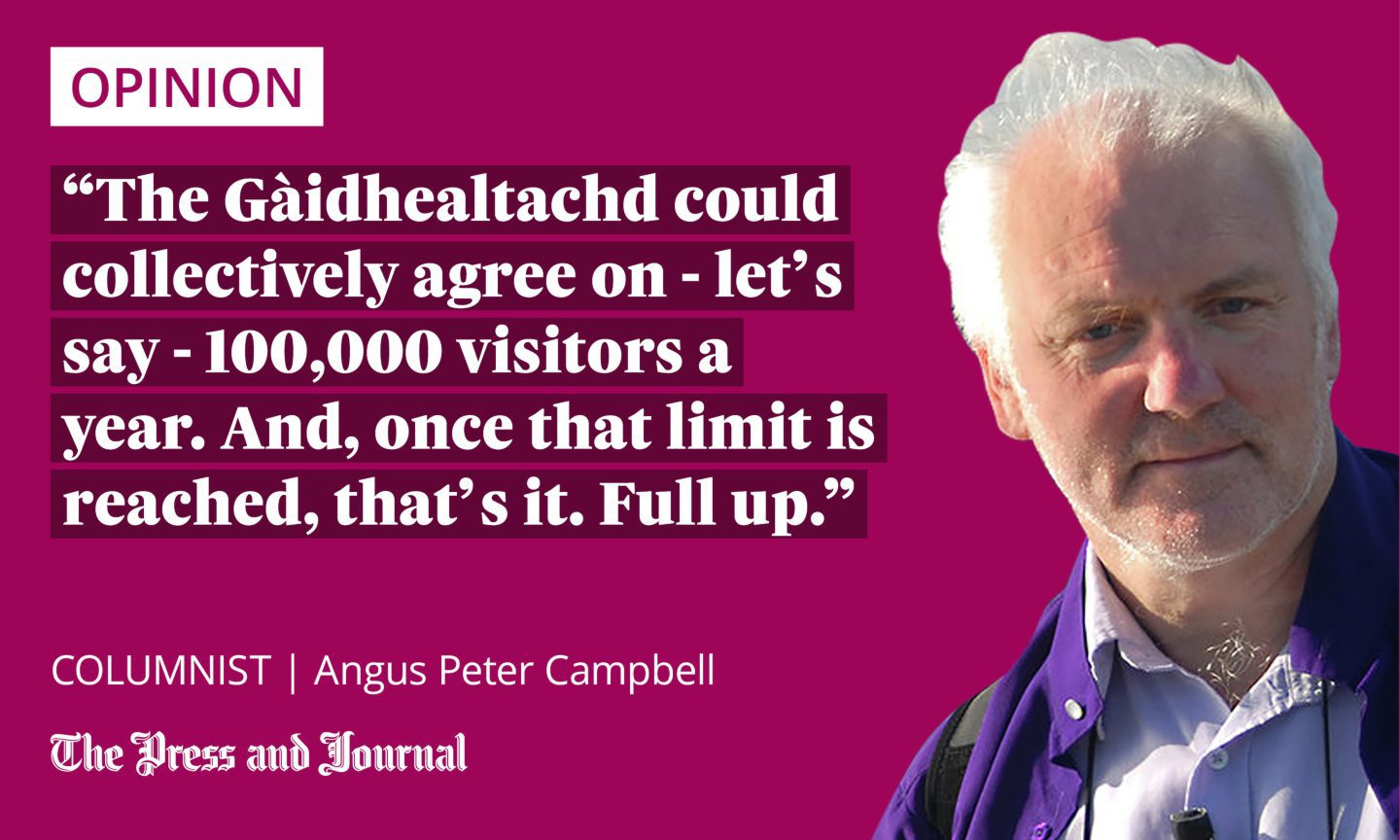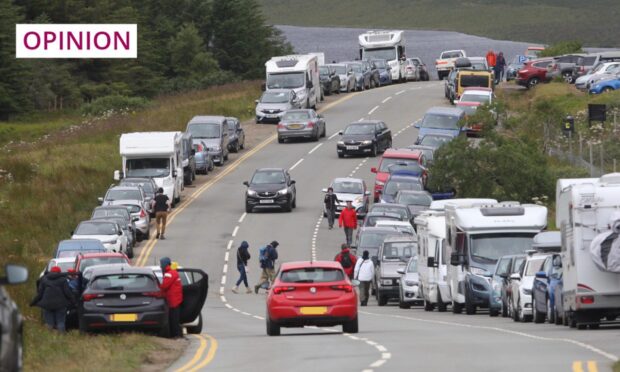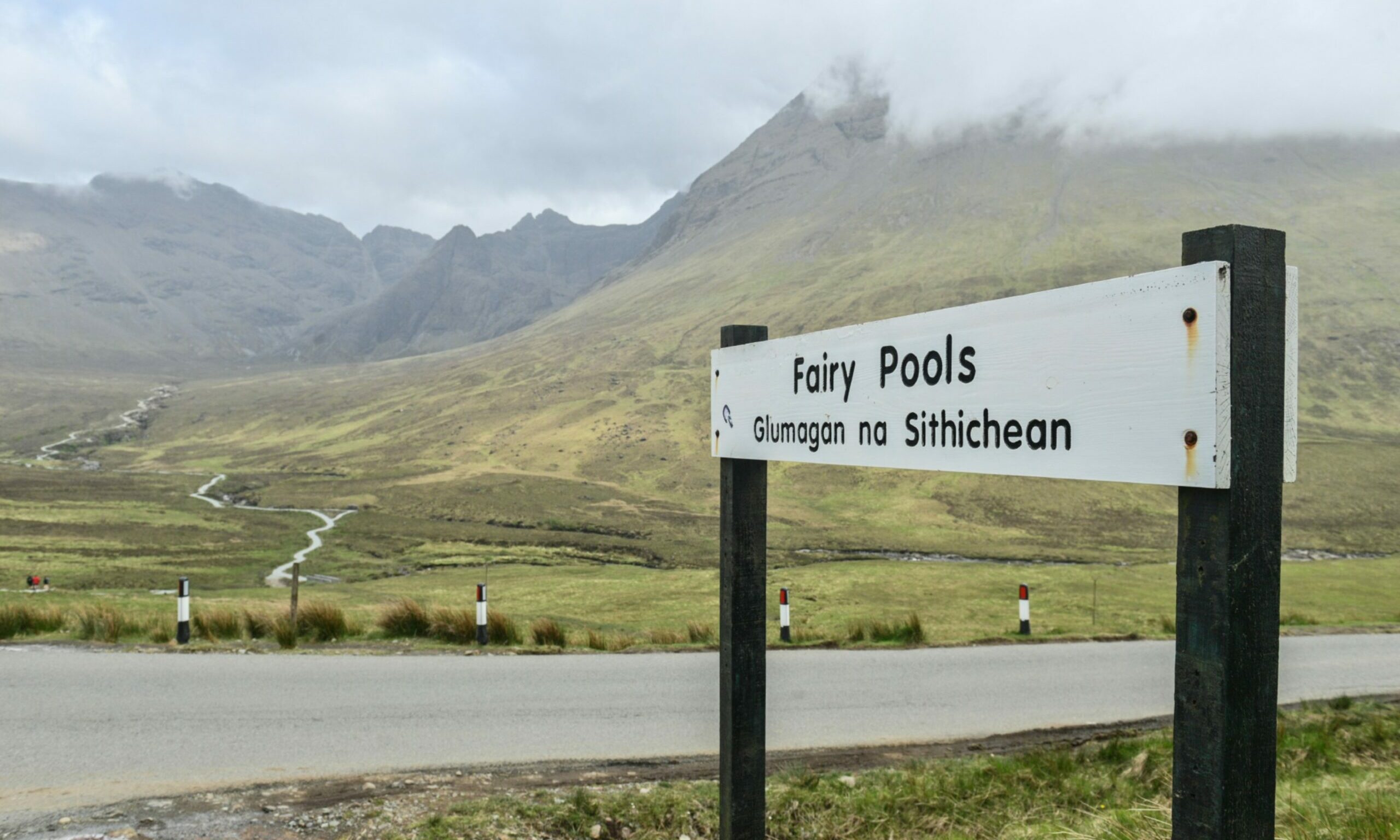“Feumaidh e stad. It’s got to stop,” I heard myself muttering when I went for my daily walk here the other day, as tour bus after tour bus and motorhome after motorhome swept by, all making for the mecca that is Skye.
Specifically, I suppose, to the so-called Fairy Pools up at the north end of the island, which attract hundreds of thousands of visitors every year. This year, the projection is that a million tourists will come to Skye. I’m convinced the island will literally sink into the Minch under the weight of tourism soon.
Now, I realise that tourism is a significant industry – and that, sometimes, I’m a tourist myself. I went to Portree, for example, a couple of weeks ago. Although – to be fair – that was to see the local derby shinty match, which Kinlochshiel won 4-0 against Skye. But there does come a point when, as individuals and as a community, we need to say enough is too much!
While I’m at it, I might as well mention that the name of the main tourist attraction – the Fairy Pools – is a fairly modern invention, and has nothing to do with the island’s indigenous language or culture or history.
The name was simply invented by an anonymous traveller who visited Skye and published a book in 1930 called Walks Round Sligachan, under the pseudonym “Two Tramps and a Dog”. The moniker “Fairy Pools” was never used before then.
The actual name of the place is Coire na Creiche (the Corry of the Foray or Plunder) – a historic location where some fiery clan fights took place between the MacLeods and the MacDonalds in the 16th and 17th centuries. The events and place are celebrated in some wonderful pipe music, but what does that matter when a replacement mythology about imagined fairies sells better?
For what else, to the non-Gael, was the Gaelic world anyway, but some sort of misty Fairyland? A journalist friend of mine from Skye told me the other day: “I now live in what’s more or less a theme park.”

According to the dictionary, “a theme park is a large outdoor area where people pay to go to enjoy themselves. All the different activities in a theme park are usually based on a particular idea or theme.” Aye, that’s us, right enough.
And what’s the idea? The idea that we here (in the Gàidhealtachd) are a remote people, living in a beautiful, empty landscape – in a picturesque wilderness?
Never mind the growing housing crisis, the lack of infrastructure, the ongoing ferries debacle, the decline of Gaelic, the increasingly-ageing demographic, and the workforce shortage (because folk can’t find or afford accommodation). These daily issues only concern real people in real places, to use Iain Crichton Smith’s famous phrase, not the passing travellers who come to view the misty Cuillin and the mythic Fairy Pools.
It’s not that tourism is wrong, or unimportant. Just that it needs to be kept in balance, so as not to destroy the very thing it hopes to enjoy. I suppose it’s like the demon drink: a glass or two of wine or a wee dram in the evening – but when it becomes industrialised or addictive, it spells disaster.
Ideally, I would ban all tourism
The problem with tourism at the moment (globally, as well as here in the Gàidhealtachd) is that it has become completely imbalanced. Huge motorhomes and tour buses and cars choke up our (potholed) roads and cause significant environmental damage. Local services cannot keep up with the demand: there are simply not enough public toilets to cope with the millions, for a start. And my poor language gets further silenced in the racket.
I don’t know what the solution is. Ideally, I would ban all tourism, and folk (including me) would only be allowed to travel for essential purposes (to hospital, for example) or to visit family. But I have no desire to be a fascist.
So, maybe it should be rationed? The Gàidhealtachd, for example, could collectively agree on – let’s say – 100,000 visitors a year. And, once that limit is reached, that’s it. Full up. Closed until further notice. Làn. Dùinte.
Like the magnificent Lascaux Cave paintings in France, closed to the general public since 1963. As when you go to a concert or onto a bus, sometimes, and you need to have booked and have a ticket. And if you don’t, well, you don’t get in or on.
I realise that we all dream of travelling to some sunny fairyland: whether that’s Skye or Spain or even Strichen. But we should learn (if only for the sake of a burning world) to stay at home. Maybe Pascal was right after all when he said: “All of humanity’s problems stem from man’s inability to sit quietly in a room alone.”
Angus Peter Campbell is an award-winning writer and actor from Uist


Conversation